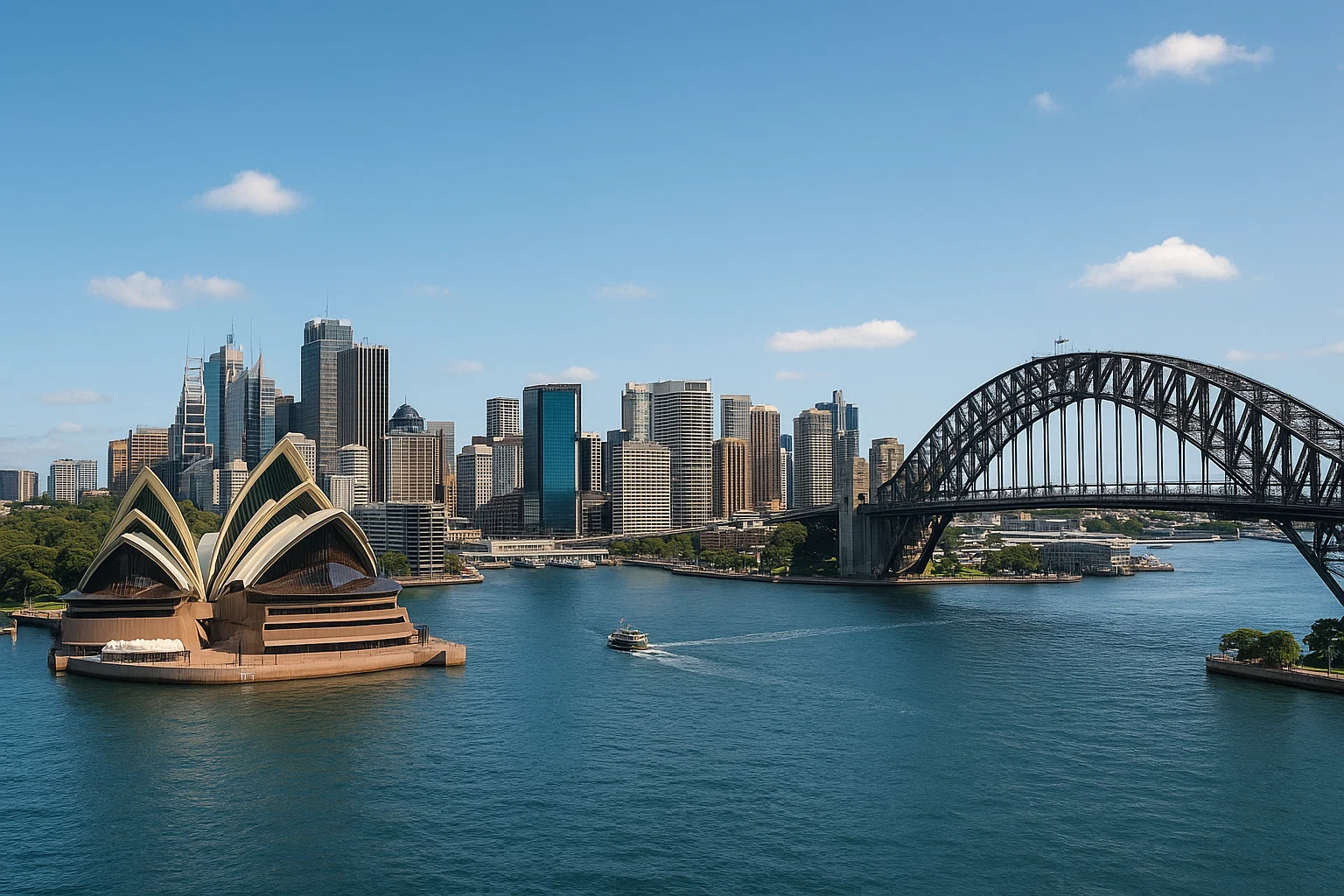Settle-In Essentials
Understand rentals, healthcare, transport, and finances with ready-to-use numbers and checklists.
Turn to page →Detailed guidance on housing, healthcare, digital setup, and routine tasks to support your first weeks in Australia.
The guide brings together practical budgets, step-by-step checklists, and lessons from recent arrivals who have already completed rental inspections, Medicare enrolment, and school registration. Save the sections most relevant to you and return whenever you need to confirm a requirement or review the next action.

Review how to manage housing inspections, Medicare appointments, public transport cards, and everyday budgeting. The material consolidates the core information newcomers repeatedly need during their first months.
Refer to the timelines for actions in the first 24 hours, first week, and first three months. Each milestone lists the documents to prepare, the agencies to contact, and frequent issues such as utility connection delays or missed state-based healthcare registrations.
Understand rentals, healthcare, transport, and finances with ready-to-use numbers and checklists.
Turn to page →Link myGov, load the essential apps, and complete Australia’s 100-point ID checks efficiently.
Turn to page →Know the tenancy rules, consumer guarantees, and support services backing every newcomer.
Turn to page →From first rental inspections to your weekly shop, keep these benchmarks close while you scout neighbourhoods and compare costs.
Australia offers diverse housing options from inner-city apartments to suburban homes with backyard space.
Popular Options:
• Share houses ($150-350/week)
• Studio apartments ($250-450/week)
• 1-bedroom units ($300-600/week)
• 2-bedroom houses ($400-800/week)
Medicare underpins universal healthcare, supplemented by private insurance for extras like dental and optical.
What you need:
• Medicare card (if eligible)
• Private health insurance (recommended)
• Overseas Student Health Cover (students)
Major cities run integrated train, tram, and bus networks alongside extensive ride-share and cycling infrastructure.
Options include:
• Trains, buses, and trams
• Ride-sharing (Uber, Ola)
• Cycling infrastructure
• Car ownership and rentals
Factor in higher metro costs but competitive wages. Regional hubs balance lower rent with fewer transport links.
Budget breakdown:
• Groceries: $80-150/week
• Utilities: $100-200/month
• Internet: $60-100/month
• Mobile phone: $30-80/month
World-class public schooling and universities make long-term settlement attractive for families and students.
Education levels:
• Primary school (Years K-6)
• Secondary school (Years 7-12)
• TAFE and vocational training
• Universities and higher education
Open fee-free everyday accounts with digital-first banks or walk-in branches from the big four.
Major banks:
• Commonwealth Bank
• ANZ, Westpac, NAB
• Online banks (ING, Up Bank)
• Credit unions and building societies
Rapid-fire advice from seasoned expats to help you blend in faster and avoid common settling-in snags.
Prioritise a local SIM and internet plan. Telstra, Optus, and Vodafone dominate coverage, with Amaysim and Aldi Mobile offering flexible prepaid options.
Secure a Tax File Number (TFN), apply for Medicare, and consider transferring your driver’s licence within three months.
Seasons flip compared to the Northern Hemisphere. Pack for hot summers, mild winters, and bushfire smoke alerts in some regions.
Australia is low-crime, but stay sun-smart, learn beach flag signals, and keep the emergency number (000) saved.
Contactless cards and mobile wallets are the norm. Set up PayID for instant transfers and expect some venues to go fully cashless.
Legal drinking age is 18. Buy takeaway alcohol from licensed bottle shops and carry ID for age checks—even if you look older.
Connect to Australia’s key online services early so tax, healthcare, and emergency support are ready when you need them.
Use myGov as your secure gateway to the ATO, Medicare, Centrelink, and more.
How to get started: Register at my.gov.au with an email address and mobile number.
Have ready: Identity documents to complete verification and link services.
Security tip: Enable two-factor authentication immediately after signing up.
Express Plus Medicare: Lodge claims and access a digital Medicare card.
ATO app: Track tax returns, super, and your TFN.
myGov app: Manage government services on mobile with secure sign-in.
Emergency Plus: Share your GPS location with triple zero (000) during emergencies.
Use the Document Verification Service and the 100-point check to prove your identity online.
Why it matters: Streamlines applications for banking, rentals, and government services.
Tip: Store secure digital copies of passports, visas, and licences for fast uploads.
Lean on Australia’s strong legal safeguards when you sign leases, make big purchases, or chase refunds.
Know where to escalate complaints, understand what documentation to keep, and use government-backed services so you never have to navigate disputes alone.
Bonds are usually 2-4 weeks’ rent and must be lodged with the state or territory tenancy authority.
Notice periods: Expect 2-4 weeks’ written notice to end agreements, depending on where you live.
Inspections: Landlords must provide written notice before entering the property.
Maintenance: Urgent repairs are the landlord’s responsibility—submit requests in writing and keep records.
Protection: Tenancy laws prevent unfair rent increases and unlawful evictions.
Australian Consumer Law provides automatic guarantees for goods and services.
Cooling-off periods: Some contracts allow you to cancel without penalty shortly after signing.
Scam awareness: Report suspicious offers to Scamwatch and avoid paying for government services.
Financial services: ASIC regulates banks and insurers to ensure fair behaviour.
Need help? Free tribunals and ombudsmen resolve consumer disputes at no cost.
Mix and match city, housing type, and lifestyle to map out realistic monthly spending before you relocate.